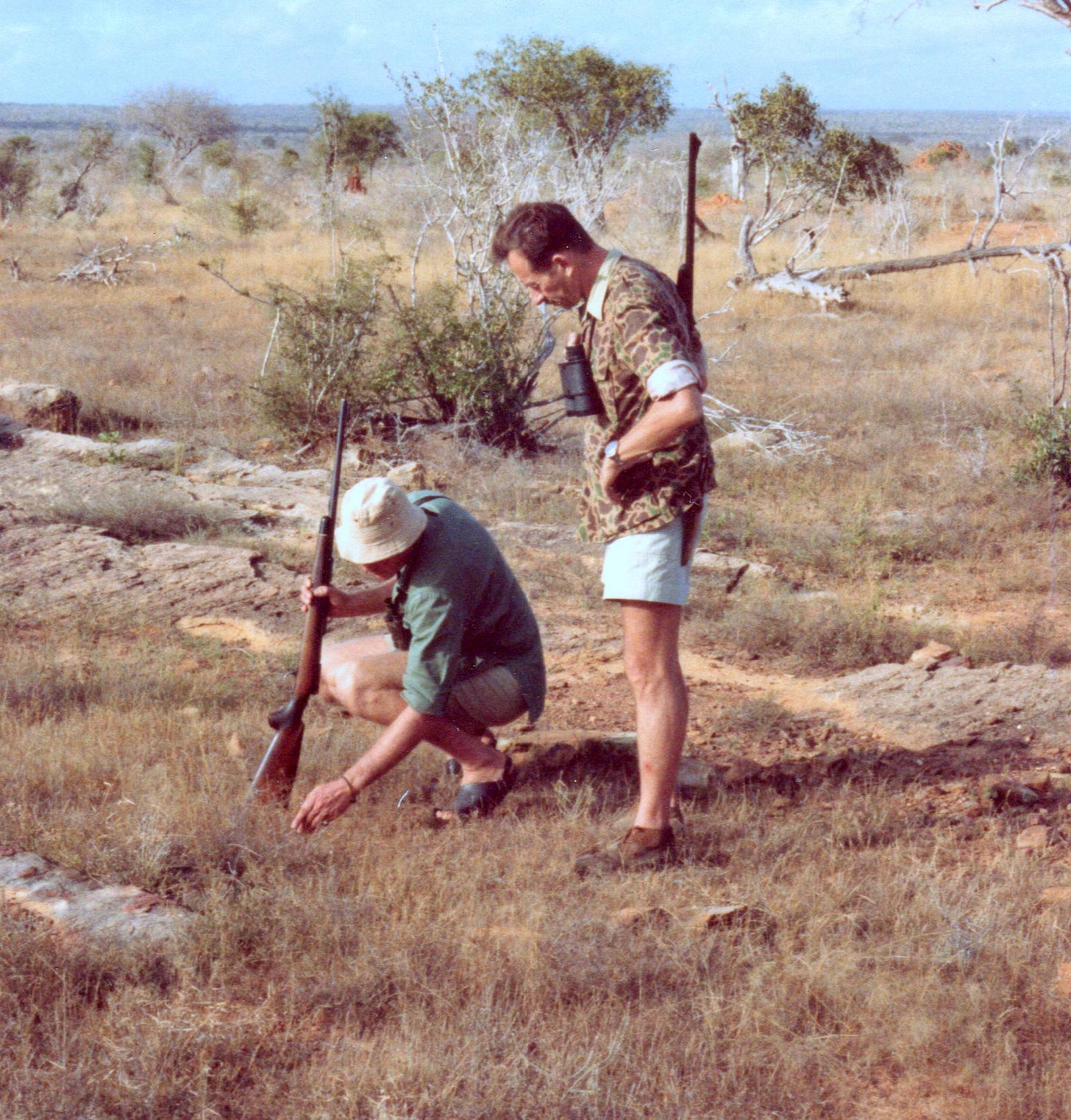(1978) Their discovery of Kenya’s untouched Tana River Delta - was the story that Alex and Sally Braguine told me, a fantastical tale of adventure in a wild and remote location… and I was hooked. Within weeks, we had incorporated the new safari company and had purchased a Land Rover, a Toyota Land Cruiser, safari tents and a host of necessary equipment. As a half-share partner, I was expected to share in the funding, and I had my money wired from London accordingly.
I learned Swahili, enjoying the lovely melodic quality of this sing-song lingua franca of East and Central Africa, which developed over the centuries as the trading language of the many Arab-funded slaving and ivory-hunting human caravans that ventured from the East African coast deep into the interior. In Swahili, the emphasis is almost always on the penultimate vowel. Pole pole means ‘slowly’ and pesi pesi means quickly. Lala is sleep. Upepo is a breeze. Aiskrimu is ice cream’. Muziki is… yes, you guessed it! Tinga tinga is a ‘tractor’... evocative of the sound it makes. Piki piki is a motorbike. Kizunguzungu is dizziness. And of course, everyone now knows Hakuna Matata!
Total immersion is a great way to learn a language quickly, and when Alex and Sally would be away in Nairobi sorting out various licenses and other administrative necessities, the camp staff and I would talk exclusively in Swahili. Two variations of Swahili are typically spoken in Kenya and Tanzania. One is the grammatical and correct formal Swahili, which is quite difficult to master. The other is called Kitchen Swahili, its name deriving from the informal Swahili that developed as a result of the mistress of the house – the white Memsahib – needing to communicate with her cook. My Swahili was always more of the Kitchen Swahili kind… but it got the job done!
I also learned how to be a professional safari guide, acquiring bush skills and discovering how to run a safari camp and work with the staff we hired. With Alex and I as Professional Safari Guides, we conducted safaris in Tsavo East & Tsavo West National Parks, also operating a seasonal luxury tented camp near the estuary of the old Tana River, along the Kenya coast between Kilifi in the south and Kipini in the north.
When I was learning to be a guide, I went out on a bush walk one day with another professional safari guide, a friend who was visiting us at our Tana Delta safari camp for a few days. A few members of our staff decided to tag along, once I made them understand that they were to keep quiet and refrain from chattering among themselves. I was still learning and practicing my Swahili at the time, and a short way out of camp, I noticed we were entering thick bush with dense cover close by.
Concerned about being charged by angry Cape buffaloes, I asked the fellow professional guide in Swahili “Do we need to worry about angry Cape buffalos out here?” At this, the staff fell about in hysterical laughter, which was perplexing to me. It turns out that although I meant to say ‘mbogo’ (buffalo), I had actually said ‘mboga’. So, I was actually asking them, “Do we have to worry about angry vegetables out here?” It took quite a while to live that one down… (to be continued)





This is very funny, especially from the camp staff point of view to hear "Bwana" mangling their language in such an amusing way.
Great post, thank you for sharing!! ♥️☀️☮️🌈🏁